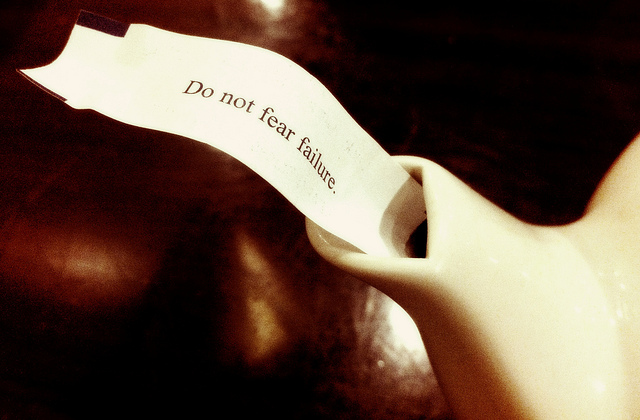Subconscious habits are so ingrained in us, we often don’t realize that through them, we are contributing to the plague of our society:
Fear.
Many habits may be present within us at any time, without causing any real issue. We are not even aware of some, and even if we are aware of others, we have no idea why we do them. It’s when a desire to change arises in us that we are forced, or choose, to start becoming more aware of our habits, and when we notice we’re slaves to more than one of them.
We begin to see that we are driven by our fears rather than our desires in life.
Through our subconscious, our habits play out a tune to the world. A tune that sings the song of fear. I’ve done it. I’ve worked through many. I still catch myself falling back into some, here and there. Old habits die hard.
The more minimalist my personal life becomes, the more I observe that people live in fear of not having enough, and the more I see particular patterns predominantly displayed.
I started down this path when I decided that decluttering and living a minimalist life was of utmost importance. Not just as one of the keys to genuine happiness, but to develop a healthy respect for the ebb and flow nature of the world.
This is my version of reality, free from my old fear-based filters:
We will always have enough, as long as we keep the cycle moving. There is a universal spiritual law that governs this, and it is called the Law of Reciprocity. It says that if we give something to another with zero intention of receiving anything in return, then we create a space within our lives to allow something to come back to us. The place where most of us tend to foul this process is when we give with the intention of getting. Sure, we have given and therefore created space, yet the intention we held for receiving when we gave immediately fills this space and doesn’t allow any room for us to receive.
We are not being punished by the Universe or any such thing when we don’t get what we thought we should, we have just closed off the space and left no room to receive anything, because we filled the space with intention of receiving.
So simple, yet so life changing.
So how do we know if we are living a life immersed in fear? Here are five sure signs that suggest it:
(Keep in mind, I have been guilty of displaying all of these behaviors, which is why, in hindsight, I clearly see what was manifesting through them.)
1. As we drive along in traffic, we all see the person who races forward down to the head of an ending lane, cuts in front of everyone, and then refuses to allow others to merge in front of them. (I was that person all through my 20s.) We often curse such a person, judging them for being arrogant and inconsiderate. We don’t realize that being arrogant is not the root cause of the issue, here. This behavior reeks of fear—of not being first, of being late because we planned poorly or over-booked ourselves, of not having enough, of being inadequate, of not winning. Fear, fear, fear. Instead of taking responsibility for our own actions, poor planning, lateness, we instead inflict our aggression on everyone else on the road. If you find yourself not willing to allow others to merge ahead of you in traffic, that’s where you may want to search deeply within, to see what drives this. (When it was me, it was poking my innate fear of inadequacy, manifesting as my need to be first all the time!) This is a red flag. Are we so cutthroat that we will not allow another to get ahead, even in traffic, because we are so afraid of not being good enough? Is one car ahead really going to make us arrive earlier?
2. Overeating is a big sign that we are living in fear. There are many things we can blame for overeating— the inherent fear of not having enough, addiction, emotional, and eating disorders, to name a few. When we get below these reasons, we find—you guessed it—fear. When I overate, I packed on 40 pounds, and ate to avoid my feelings, and my fears told me that if I didn’t take care of me, no one would. It was the first time I got off drugs, I hadn’t had excess food for awhile, and I turned into a glutton. I didn’t address the problem deep within, which was a deep hole of fear. Again, this is personal to each of us, so if you find yourself a prisoner of this habit, delve into why. We must ask, what is it we fear that food is covering up? We tend to stock pile the food within ourselves and our homes, because we are still operating under this primitive, competitive mindset, while also falling victim to our own gluttony and greed. We look outside to fix ourselves from outside, resulting in distortions of these behaviors. Are we so greedy ourselves, that were we to go hungry, we fear that no one will share with us, so we hoard food? Is it because deep within we know that we do not feed the hungry, so we fear we would not be fed if the situation were reversed?
3. Hoarding and accumulation of material things in our life—living with clutter all around us, on our work desk, in our houses and living spaces. When we allow our mind to host thoughts such as, “Even though it’s junk, I may find a use for this item at some point, I’d better hang on to it…,” we are living from a place of fear. Fear prevents us from seeing the truth—that when we need something, it will become available to us if we have the allowed the space for it to come. Instead of trusting in that, we hold on to whatever we can. How often are we surrounded by junk, yet the one thing we need is the one thing we do not have? We lose ourselves in our attachment to material things. What is really going to happen to us if we don’t have something available in every color, just in case?
4. When we make decisions, if we are living from a point of fear, we will often make decisions toward the negative, which moves us away from what we don’t want, rather than toward what we do want. Because a decision making process is intangible, this indication of fear is more difficult to gauge within ourselves, and requires constant vigilance. Next time you make a decision, ask yourself: are you choosing something you want, or are you choosing not to have something you don’t want? There is a subtle, but profound difference—spend some time examining that. Are we giving all of our energy to what we don’t want, out of fear?
5. The last sign that we are living in fear is the most powerful. When we are fearful, we don’t want to accept that things are out of our control. We become control freaks. Of course, control is all an illusion, but that doesn’t stop us from scrambling to control every aspect of our lives, including the people around us. Take time to observe the way in which you interact with the world. If you have controlling tendencies, there is a real chance you are living in fear. Are we so afraid of the unknown, that we can’t let go of our illusion of control?
All of these aspects of a fear based life can be addressed and overcome through mindful observation, meditation and a bit discipline with the mind. However, we need to be open to seeing what comes back to us, and then brave enough to do the work that needs doing to release our fears. Pema Chödrön says it best in “The Places that Scare You,” when she discusses being brave and learning to face ourselves as being the most crucial point of our own enlightenment.
For those who are seeking transformation, but don’t have any real ideas of where to begin, I suggest reading her work, and starting exactly where you are, establishing a practice of mindful loving-kindness, and meditation.
It has to start within, and the first hurdle is fear.
I promise, as we change within, facing our fears, these behaviors cease to trouble us. The best thing we can do for ourselves and the world is go within, and shine the light on the deep fears we carry. Often we find they are quite irrational!
I understand that I have merely scratched the surface of some deep-seated issues we face, and it may bring a response in you. I encourage mindful discussion on any of these issues, in the hopes that we can all break free from the plague of fear our world is facing.
Author: Lindsay Carricarte
Editor: Emily Bartran
Photo: Tomasz Stasiuk/Flickr


 Share on bsky
Share on bsky





Read 0 comments and reply